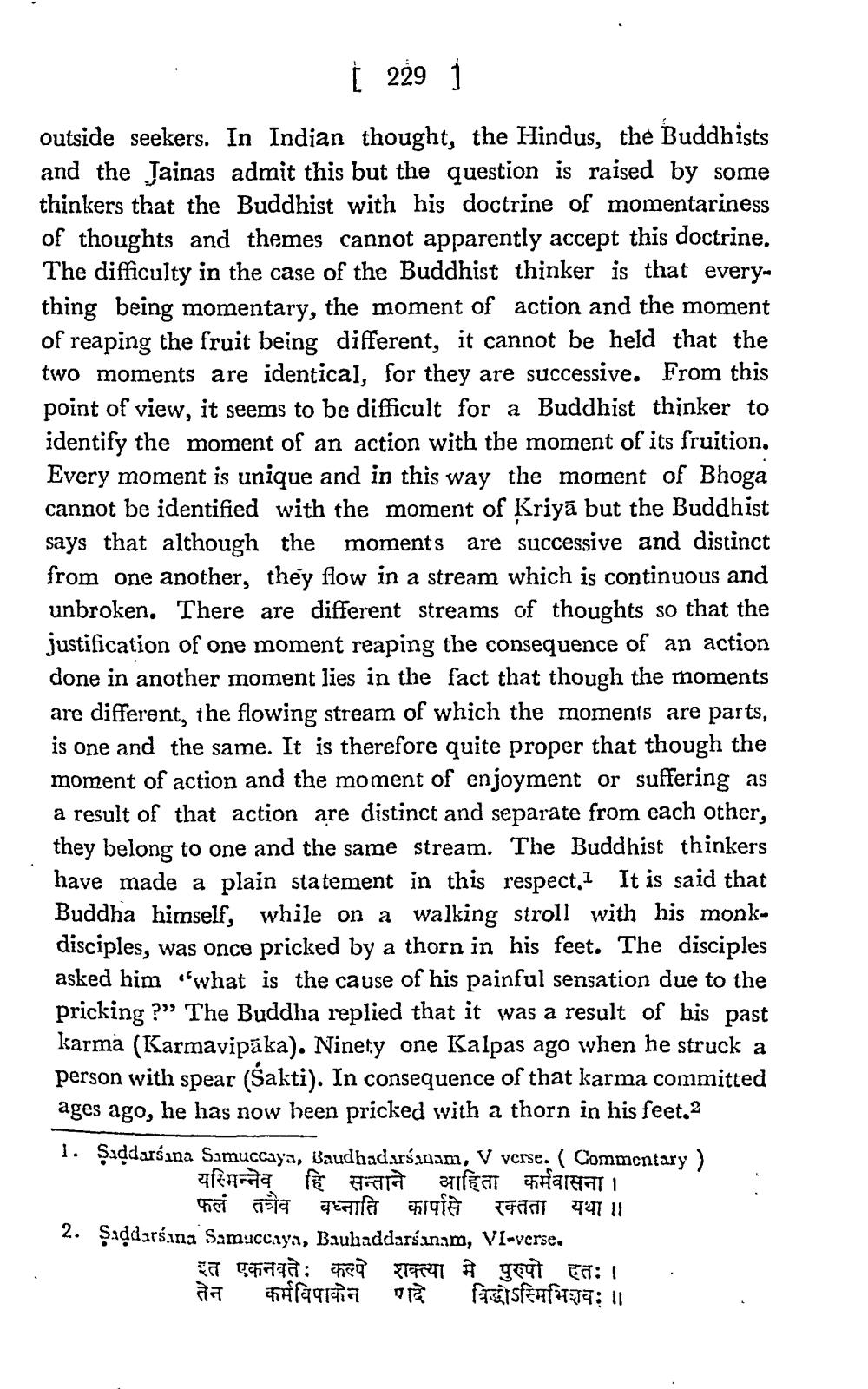________________
[ 229 1
outside seekers. In Indian thought, the Hindus, the Buddhists and the Jainas admit this but the question is raised by some thinkers that the Buddhist with his doctrine of momentariness of thoughts and themes cannot apparently accept this doctrine. The difficulty in the case of the Buddhist thinker is that everything being momentary, the moment of action and the moment of reaping the fruit being different, it cannot be held that the two moments are identical, for they are successive. From this point of view, it seems to be difficult for a Buddhist thinker to identify the moment of an action with the moment of its fruition. Every moment is unique and in this way the moment of Bhoga cannot be identified with the moment of Kriyā but the Buddhist says that although the moments are successive and distinct from one another, they flow in a stream which is continuous and unbroken. There are different streams of thoughts so that the justification of one moment reaping the consequence of an action done in another moment lies in the fact that though the moments are different, the flowing stream of which the moments are parts, is one and the same. It is therefore quite proper that though the moment of action and the moment of enjoyment or suffering as a result of that action are distinct and separate from each other, they belong to one and the same stream. The Buddhist thinkers have made a plain statement in this respect. I It is said that Buddha himself, while on a walking stroll with his monkdisciples, was once pricked by a thorn in his feet. The disciples asked him "what is the cause of his painful sensation due to the pricking ?” The Buddha replied that it was a result of his past karma (Karmavipäka). Ninety one Kalpas ago when he struck a person with spear (Sakti). In consequence of that karma committed ages ago, he has now heen pricked with a thorn in his feet.2 1. Şaddarśana Samuccaya, Baudhadarśanam, V verse. ( Commentary )
यस्मिन्नेव हि सन्ताने आहिता कर्मवासना।
फलं तत्रैव वध्नाति कार्पासे रक्तता यथा ।। 2. Saddarśana Sam:ccaya, Bauhaddarśanam, VI-verse.
श्त एकनवतेः कल्पे शक्त्या में पुरुपो हतः । तेन कर्मविपाकेन पदे विद्धोऽस्मिभिशवः ।।




